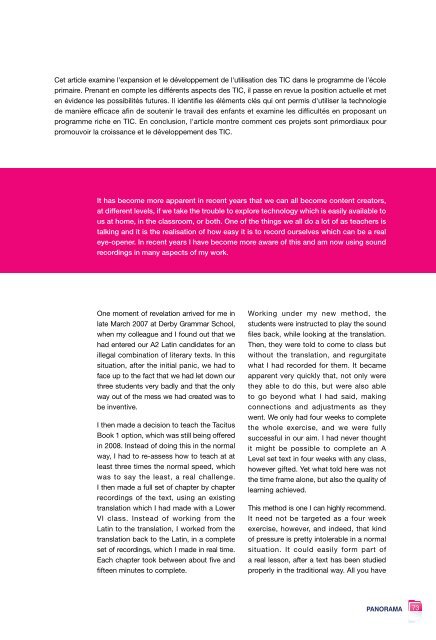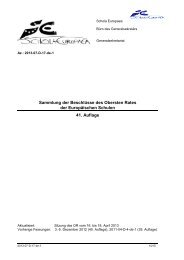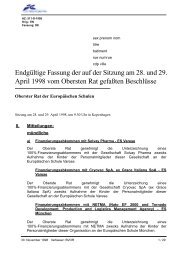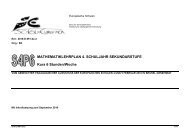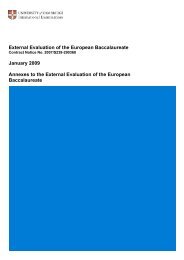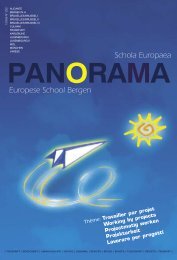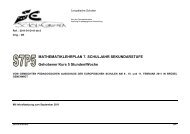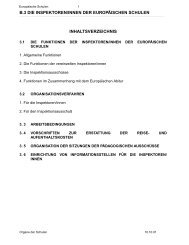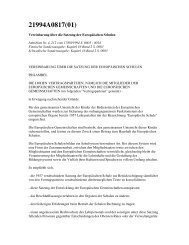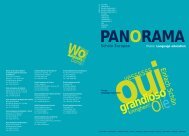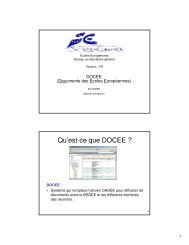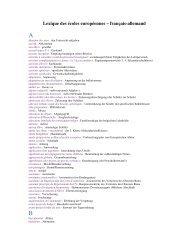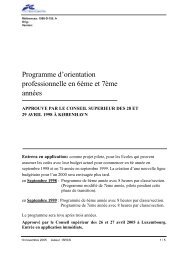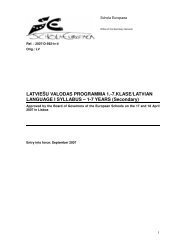Schola Europaea European School Brussels II
Schola Europaea European School Brussels II
Schola Europaea European School Brussels II
Create successful ePaper yourself
Turn your PDF publications into a flip-book with our unique Google optimized e-Paper software.
Cet article examine l'expansion et le développement de l'utilisation des TIC dans le programme de l'école<br />
primaire. Prenant en compte les différents aspects des TIC, il passe en revue la position actuelle et met<br />
en évidence les possibilités futures. Il identifie les éléments clés qui ont permis d'utiliser la technologie<br />
de manière efficace afin de soutenir le travail des enfants et examine les difficultés en proposant un<br />
programme riche en TIC. En conclusion, l'article montre comment ces projets sont primordiaux pour<br />
promouvoir la croissance et le développement des TIC.<br />
It has become more apparent in recent years that we can all become content creators,<br />
at different levels, if we take the trouble to explore technology which is easily available to<br />
us at home, in the classroom, or both. One of the things we all do a lot of as teachers is<br />
talking and it is the realisation of how easy it is to record ourselves which can be a real<br />
eye-opener. In recent years I have become more aware of this and am now using sound<br />
recordings in many aspects of my work.<br />
One moment of revelation arrived for me in<br />
late March 2007 at Derby Grammar <strong>School</strong>,<br />
when my colleague and I found out that we<br />
had entered our A2 Latin candidates for an<br />
illegal combination of literary texts. In this<br />
situation, after the initial panic, we had to<br />
face up to the fact that we had let down our<br />
three students very badly and that the only<br />
way out of the mess we had created was to<br />
be inventive.<br />
I then made a decision to teach the Tacitus<br />
Book 1 option, which was still being offered<br />
in 2008. Instead of doing this in the normal<br />
way, I had to re-assess how to teach at at<br />
least three times the normal speed, which<br />
was to say the least, a real challenge.<br />
I then made a full set of chapter by chapter<br />
recordings of the text, using an existing<br />
translation which I had made with a Lower<br />
VI class. Instead of working from the<br />
Latin to the translation, I worked from the<br />
translation back to the Latin, in a complete<br />
set of recordings, which I made in real time.<br />
Each chapter took between about five and<br />
fifteen minutes to complete.<br />
Working under my new method, the<br />
students were instructed to play the sound<br />
files back, while looking at the translation.<br />
Then, they were told to come to class but<br />
without the translation, and regurgitate<br />
what I had recorded for them. It became<br />
apparent very quickly that, not only were<br />
they able to do this, but were also able<br />
to go beyond what I had said, making<br />
connections and adjustments as they<br />
went. We only had four weeks to complete<br />
the whole exercise, and we were fully<br />
successful in our aim. I had never thought<br />
it might be possible to complete an A<br />
Level set text in four weeks with any class,<br />
however gifted. Yet what told here was not<br />
the time frame alone, but also the quality of<br />
learning achieved.<br />
This method is one I can highly recommend.<br />
It need not be targeted as a four week<br />
exercise, however, and indeed, that kind<br />
of pressure is pretty intolerable in a normal<br />
situation. It could easily form part of<br />
a real lesson, after a text has been studied<br />
properly in the traditional way. All you have<br />
PANORAMA<br />
73


